If you received a phone call saying you just won a million dollars, would you be happy and immediately celebrate? You shouldn't. Such things are usually scams to get money from you. And Scammers know just what to say and do to wrangle your hard earned dollars from you.

Is it real, or is it a SCAM?
by cherylone
Things to look for when contacted for money or "great" offers.
In this age of everything on the internet and in the computers it is hard to know if you are receiving a scam or the real thing. A phone call could be used to swindle you out of thousands of dollars. An e-mail could be used to get your personal information. A request for money from a stranded relative could actually be a total stranger looking to swindle you out of your hard earned cash. And the list goes on, and on, and on. There is no end to the ways people find to illegally get your money out of you. With the economy the way it is, we need every penny we can get and we do not need someone taking it away from us!
How do we defend ourselves? How do we protect what is ours?
I have compiled a list of items that may help you avoid a scammer. But the best thing for you to do to avoid a scam is "think first, ask questions second, and never give until you are sure"!
If you get a phone call asking for money from a family member in need.....
Your first step should be to verify the phone number on your caller ID. (If you don’t have caller ID, you might want to try getting a phone that you can program in the numbers that you use daily like the doctor’s office, your daughter, your spouse, most cell phones have that feature. Do it before you need it.) Then when the ID comes up as unknown, don’t answer it, let them leave a message. Then, call the person they are claiming to be (with the number you have on file) and check with them before you send the money. You can check with family if you can’t reach the actual person. For instance, a sister would know if her brother is on holiday in Canada. If you have no caller ID and no programmable phone then let the person talk getting as much information as you can (write it all down) to include: the number where they can be reached, the names of parties involved, the amount and venue for delivery, and their location. Then call the person supposedly involved using the number you already have on file (not the one the caller gave you) and ask if they called you for money. If not, give the information you gathered to the police immediately! If that person can’t be reached, try a family member at a number you already know. Don’t send money until you know the person asking is the actual person you know! A good way to determine if it is a scam or not is to let them know you are writing everything down, including their name. Often they will hang up and you will never hear from them again.
Don't send money (or anything else) to casual acquaintances!
If you haven’t known the person that long, even if they were introduced by a friend, don’t send them money or give them anything! They will most likely pretend to be hurt and offended that you “don’t trust them”, but believe me, a hurt ego is much better than an empty savings account. Don’t let them ‘guilt’ you into sending it either. It is your hard earned money and they have no right to it (even if they are family)!
Don't send anything of value to any one....
Unless you are certain you know who they are! For instance: if someone claiming to be your spouse called you and said they needed you to send the $300 ring they gave you for Christmas to them via UPS, don’t!
First, your spouse would not need you to send it to them; they can come home and get it if they needed it that badly. And neither would a brother, sister, mother, father, etc. And don’t be fooled by the fact that they knew you had the ring! Scammers hang out at jewelry counters and high priced stores to watch and listen. When someone buys expensive gifts, they usually tell the clerk why, for, and when. Scammers then collect that information and a few days later you get a call. Instead, get the information; then hang up and call the person using their regular number. Ask for verification of the request; 99.9% of the time you will find they didn't make the request.
Don't give any of your personal information over the telephone!
When someone calls you and asks you for your social security number, date of birth, and/or full name and address etc., they are not who you think they are. They are trying to get your information for identity theft!
Never give the information over the phone and never write it down on a form “they” send you and then send it back! If a company wants your information, there are legal ways for them to get it so they will not need you to give it to them if they call you. Instead, get their information, then look up the number of the company named either on-line or in the phone book (or call the phone company via their information line). Call the company and ask them if they called you. If not, then report that someone is using their name and logo for scamming.
If a doctor’s office, credit company, bank, etc. that you actually do business with calls and asks you to verify your account, give date of birth, etc. don’t do it. They have your information and should be giving it to you for verification not the other way around. Scammers often hang out at doctor’s offices and banks and such to get names and dates and then they use it for scamming.
If you call a company and they ask for your information, be certain they are who they say they are before giving it out. For example: if you signed a contract with a credit card company, they will send you information which will include their customer service number. If that company then calls and says they changed their number and could you call them at this “new” number and verify your information--don’t! Instead, use the number that you originally received and verify the call. You will usually find that the call was bogus. Companies rarely change their numbers and when they do, they are very vocal about it so that all of their customers know; plus, they will send notification in the mail along with your account number and information.
Be careful with e-mails especially if they have links.....
If you receive an e-mail with a request for information, don’t give it; especially if the e-mail has a link that you are supposed to use to input the information. These e-mails are generally frauds.
Companies will not ask you for anything personal via the internet unless you are logged into their secure web site. So, unless you have been doing business with this company and are logged onto their site as usual, don’t give the information. Instead, close the e-mail and then go to the site via the link you always use and log in. Then check your information. Usually the scammer will tell you that you are about to lose your information due to a glitch in the system and you have to verify it. If the information is on the site where you usually log in, the e-mail is a scam. Please be sure to report it to the company and to your e-mail provider. Also, when a company has an issue, they will list it at the top of their site along with a notice for you to call them using their customer service line, and they will not give a different number for you to use!
Be careful of sites that are close to an actual company site.
If it doesn’t look or sound right, get out of it fast! Scammers with computer savvy will put a link to a well-known company on a page and then the link takes you to their ‘fake’ page. Then you will be giving them information rather than the actually company.
Be careful to research and be sure the page is for the company you want! One way to be sure is to look for the logo. Many scammers can replicate the logo to a certain point, but there is always something different. Another way is to actually call the company via a number you received from a phone directory not connected with the site. They can verify if the site is theirs by giving you the link for their site over the phone.
NEVER, NEVER, NEVER give out your passwords!
Passwords are your links to purchase information, private information and financial information. If you give someone your password, they can get into anything to which you have access.
If you feel you absolutely have to give someone a password for something, change it immediately! This is for your safety as well as theirs. If you only give the password to one person and the site is hacked, you will blame the one person, but they may not be to blame. You could have been overheard giving the password away or someone may have seen you putting in your password.
Scammers don't always call you for money.....
Debit and Credit card scams...
They might be watching you as well. Be careful when, where, and how you use your debit and credit cards.
Keep the numbers on the card covered when in use and don’t take the card out early or hold onto it while you punch in your pin. Scammers practice to recall long numbers and they can get your number from a quick glance. If you aren’t careful with putting in your pin, they can get that too! Don’t think that putting “see ID” on your card will prevent use because all they have to do is go online and use the numbers and expiration date, no ID needed. And Debit cards can be used as debit (requiring a pin) or credit (no pin). Don’t let the card out of your sight and don’t allow anyone time enough to see the numbers! If you plan to use the card at a restaurant where they take it away, be careful to monitor where it goes and check it when it comes back. Also, many credit cards can be set up to require a pin when in use. This would prevent anyone from using the card without your permission.
ALWAYS check your bank statements and credit card bills when they come in for bogus charges!!!!!! I can’t stress this enough. When a bogus charge is made on your account from a card or number that has been stolen, the charge becomes yours after 30 days without a dispute (in other words you have 30 days to tell them the charge isn’t yours, after that you have agreed that you are responsible). So check those bills as soon as they come in; compare them to your receipts and verify that all the charges (and the amounts) are accurate. If there is a charge you didn’t make or one that is more than you authorized, call your bank and/or credit card company immediately!
Don't trust anything that sounds too good to be true!
This is accurate for just about everything you see out there today. For instance: if you get a letter that tells you that you have won the Lottery in New Britain, stop and think before you celebrate! And don't send them money for fees and taxes!
Ask youself: Did you go to New Britain recently? Did you purchase a Lottery Ticket? Did you register that purchase? If you answer “NO” to any of those questions, then you absolutely did not win the lottery. Think before you act with anything that comes with a sudden announcement that you are the winner, etc. Remember what you do by noting things in a small journal that you keep in a safe place. For instance: If you are someone who likes to enter all kinds of contests, keep track so that when an announcement comes in that you won, you are certain you entered.
The Government does not just GIVE money away!
The government will not, under any circumstances, try to contact you to give you money!!!!! They will not say that they are using an auditing company to find people who failed to collect a refund.
They will not tell you that you had a relative that died and left a trust for you (although a lawyer might, be sure to check it out--did you have an Aunt Verra?). They will never ask you to send them information so you can claim your lost millions. If you have money from the government, then it is up to you to claim it; and, if you don’t, the government claims it after a small period of time as unclaimed funds. Also, if you have no connection to anyone in an out of state or overseas area, then why would anyone be giving you something? And how could you possibly have won anything from there if you have never been there?
Checks are great scamming tools!
If you receive a check in the mail-whether it says “cashiers check”, “money order”, “money gram” or even has a company logo on it, research it before you cash it.
Ask yourself these questions: Did I do business with this company and do I know that I am getting money from them for an overpayment, ETC? Do I know the company well? Did the check come from overseas? Was the check a surprise? Have I been asked to cash the check and send money back? If you do not know the company and have never done business with them, then don’t accept the check. Instead, report it to the post office as a scam.
If you receive any type of correspondence that asks you to accept checks for a certain amount, cash the check and send some of the money back, DON’T DO IT! Scammers will create false companies that will send bogus checks out to an unsuspecting person asking them to cash the check and then make them out a money order for a large portion of the check and send it back to them. The check bounces and you are out the large portion that you “sent back”. If you are asked to do something whether you think the request is legitimate or not, wait until your bank has cleared the check before sending the money out. If the person “can’t wait that long” then they are probably trying to scam you. (Turn the tables around on this one and be careful of the person that says they need a large check from you and then the check must clear before you can get your product. More than likely, they will be long gone by the time the bank tells you the check cleared and you are out the money.)
Contractors are not always good....
Be careful of the contractor that comes to your house and offers to do a job for you at a reduced rate. Generally, if the contractor is working out of their truck and not a legitimate business address (you can check this), then they are trying to scam you.
They will most likely do a poor job that will fail within a few days and you will pay them a “reduced rate” that you will never be able to get back from them because they have no license or legitimate address for you to file against. There are places you can go to check on the legitimacy of a business. The Better Business Bureau is one of the best places. You can also go to Angie’s List or Superpages.com. Still not sure? Ask for their license! Contractors are required to register with the state where they are working and the state will issue them a license. If they don’t have one, then they are not legitimate!
Be careful with ATM's.
When you use an ATM, be careful where and when you use it. If you haven’t used that particular ATM before, and/or you are in a store that you don’t usually frequent, then it is probably not a good idea to use it. Also, if the ATM is at a remote location (ie not part of the bank), then it could mean trouble.
Scammers can install card readers and key punch software that can record your card and your pin. Then it is simply a matter of going to another ATM and they have your money. Try to use the bank ATM’s which are monitored, or ATM’s that are in plain view of a lot of people. Also, if you use an ATM that is not affiliated with your bank, you may have to pay a fee for the ATM and another when your bank processes the transaction.
If you are not careful....
Calls, Letters, ATM's, collection agencies, debt collectors, even legit companies with shady salesman can scam you. Read, understand, ask questions, and don't be afraid to assert your rights. After all, it's your money and one has a better right to it than you!
You might also like
Things to Do With Kids in New HampshireThe New England area is a great place to explore the great outdoors, and fami...
Top 10 Favorite Essential Baby ProductsThese are my absolute Must-Haves when it comes to babies and making baby life...
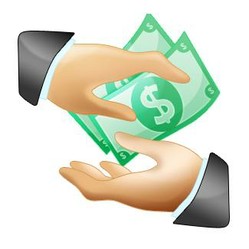

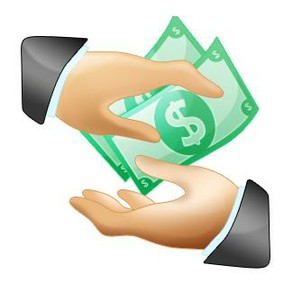
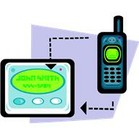


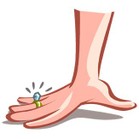
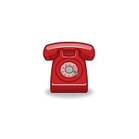


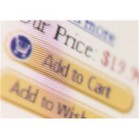
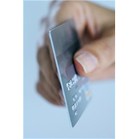
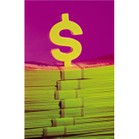
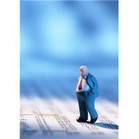


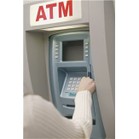

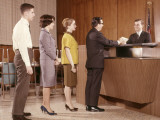


 Fruit and vegetable juice or whole fruits and vegetables, which is better for youon 04/23/2013
Fruit and vegetable juice or whole fruits and vegetables, which is better for youon 04/23/2013
 How to use memory wire to create jewelryon 12/19/2012
How to use memory wire to create jewelryon 12/19/2012
 The Spriteon 11/27/2012
The Spriteon 11/27/2012
 How to keep your feline companions safe and content during the holiday seasonon 11/10/2012
How to keep your feline companions safe and content during the holiday seasonon 11/10/2012


Comments
Boy is that the truth. I was amazed myself at how easy it is for them to create scams that look so real.
It always amazes me how many people fall for scams. There are some very clever criminals out there and you have to stay vigilant or it will cost you.